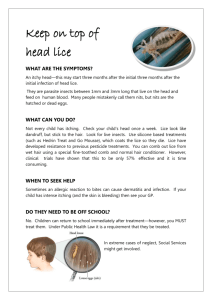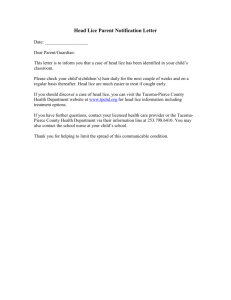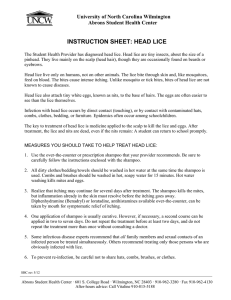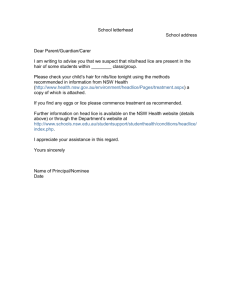INSTRUCTION SHEET: PUBIC LICE University of North Carolina Wilmington
advertisement
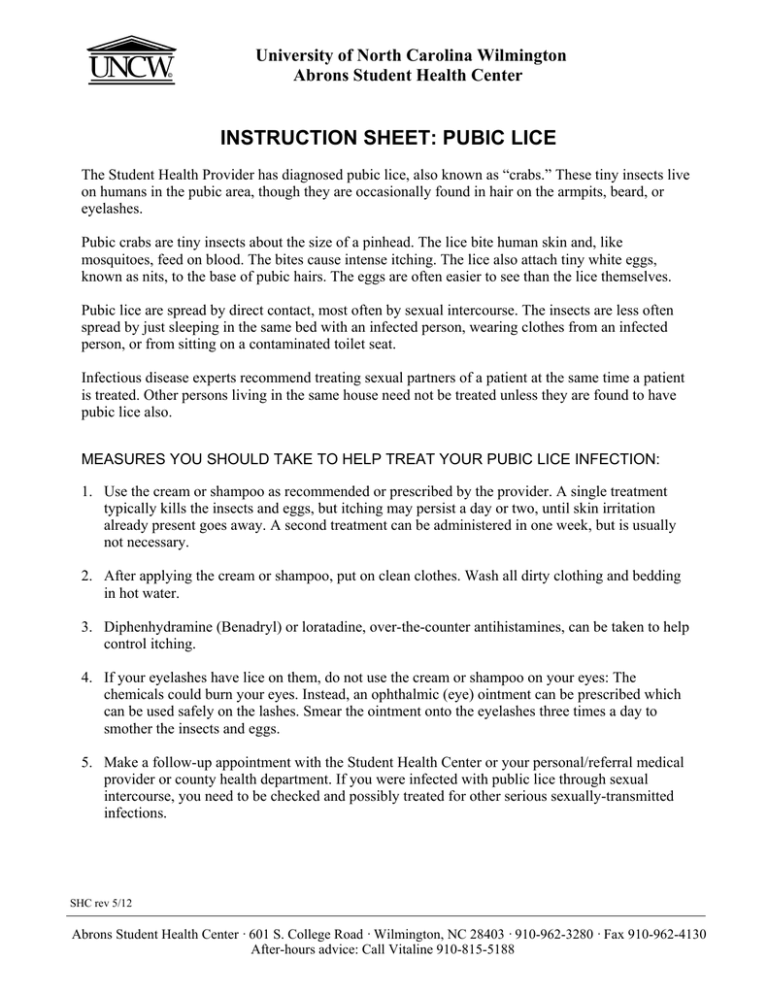
University of North Carolina Wilmington Abrons Student Health Center INSTRUCTION SHEET: PUBIC LICE The Student Health Provider has diagnosed pubic lice, also known as “crabs.” These tiny insects live on humans in the pubic area, though they are occasionally found in hair on the armpits, beard, or eyelashes. Pubic crabs are tiny insects about the size of a pinhead. The lice bite human skin and, like mosquitoes, feed on blood. The bites cause intense itching. The lice also attach tiny white eggs, known as nits, to the base of pubic hairs. The eggs are often easier to see than the lice themselves. Pubic lice are spread by direct contact, most often by sexual intercourse. The insects are less often spread by just sleeping in the same bed with an infected person, wearing clothes from an infected person, or from sitting on a contaminated toilet seat. Infectious disease experts recommend treating sexual partners of a patient at the same time a patient is treated. Other persons living in the same house need not be treated unless they are found to have pubic lice also. MEASURES YOU SHOULD TAKE TO HELP TREAT YOUR PUBIC LICE INFECTION: 1. Use the cream or shampoo as recommended or prescribed by the provider. A single treatment typically kills the insects and eggs, but itching may persist a day or two, until skin irritation already present goes away. A second treatment can be administered in one week, but is usually not necessary. 2. After applying the cream or shampoo, put on clean clothes. Wash all dirty clothing and bedding in hot water. 3. Diphenhydramine (Benadryl) or loratadine, over-the-counter antihistamines, can be taken to help control itching. 4. If your eyelashes have lice on them, do not use the cream or shampoo on your eyes: The chemicals could burn your eyes. Instead, an ophthalmic (eye) ointment can be prescribed which can be used safely on the lashes. Smear the ointment onto the eyelashes three times a day to smother the insects and eggs. 5. Make a follow-up appointment with the Student Health Center or your personal/referral medical provider or county health department. If you were infected with public lice through sexual intercourse, you need to be checked and possibly treated for other serious sexually-transmitted infections. SHC rev 5/12 Abrons Student Health Center · 601 S. College Road · Wilmington, NC 28403 · 910-962-3280 · Fax 910-962-4130 After-hours advice: Call Vitaline 910-815-5188
